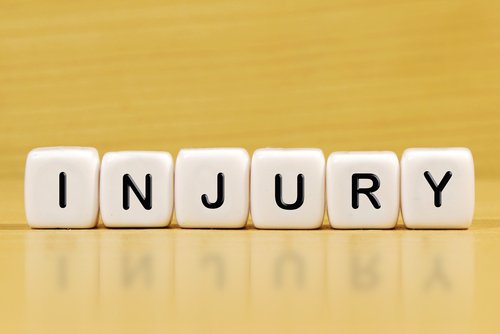
What Injuries does Zantac Cause?
Notice: At this time we are no longer accepting cases related to Zantac cancer claims. However, if you have questions about other mass tort or personal injury cases that we are currently accepting, please call or fill out our case evaluation form.
According to Healthline, Zantac—which is also known by its primary ingredient, ranitidine—may cause a number of side effects that may qualify as injuries, including:
- Discomfort in your abdomen
- Problems with your digestive system, possibly including nausea and vomiting
- Problems affecting your liver, which may cause jaundice
- Fatigue
- Harm to your brain, which may cause changes in your mood or personality and blurry vision
- Changes in your cardiovascular function
The most serious possible injury caused by Zantac is cancer, which may be the result of unsafe levels of the chemical compound N-Nitrosodimethylamine (NDMA), according to ABC News.
Zantac Was Erroneously Marketed as Safe
When Glaxo Holdings Ltd, now known as GlaxoSmithKline PLC, brought Zantac to market in 1983 (per Reuters), it disclosed some side effects, including those listed above. By the fact that Glaxo Holdings Ltd brought Zantac to the consumer market, it implicitly suggested that the antacid was safe for human consumption (side effects being considered).
It is now clear that Zantac is not safe, and that the active ingredient in Zantac, ranitidine, may produce unsafe levels of NDMA, putting consumers at a risk of developing cancer as a result.
Some possible failures that may have resulted in Zantac’s potential cancer-causing quality being hidden from consumers include:
- Failure by the U.S. Food and Drug Administration (FDA), which greenlit Zantac as safe for sale to consumers in 1983 and claims to have testing standards that are “among the highest … across the globe”
- Failure by manufacturers of drugs containing ranitidine—a group that, according to Reuters, includes GlaxoSmithKline PLC, Johnson & Johnson, Boehringer Ingelheim Pharmaceuticals, Novartis, and Sanofi—to detect impurities in ranitidine that may result in the proliferation of NDMA in those who ingest ranitidine
As a result of these (and possibly other) failures by drug manufacturers and regulators, consumers who ingested Zantac or other forms of ranitidine may have been unknowingly exposed to a high risk of developing cancer.
Exposing Millions to Cancer May Prove to Be Negligence
Once online pharmacy Valisure discovered that impurities in the Zantac ingredient ranitidine could increase one’s risk of developing cancer, other dominoes began to fall. After Valisure’s revelation came to light:
- Pharmacies such as CVS suspended sales of Zantac and generic ranitidine, suggesting that they found the drugs’ cancer risk compelling
- The FDA requested that manufacturers of Zantac and ranitidine withdraw products from the market due to the revelations of their possible cancer-causing properties
- Manufacturers of Zantac and ranitidine, including Sanofi, eventually withdrew such products from U.S. and Canadian markets
These moves were necessary to protect consumers from any further harm caused by the instability of ranitidine. It appears, however, that the presence of unsafe levels of NDMA in Zantac and the breakdown of ranitidine in the body may:
- Have put a countless number of Zantac and ranitidine users at a risk of developing cancer for more than three decades, per multidistrict litigation (MDL) 2924
- Have been detectable with thorough testing
- Be grounds for lawsuits against manufacturers of Zantac and ranitidine, and possibly regulatory bodies such as the FDA
The Environmental Protection Agency (EPA) designates NDMA as a “probable carcinogen,” and MDL 2924 states that studies show ranitidine may produce levels of NDMA in the human body that are hundreds of times greater than “acceptable” levels. Failure to acknowledge these potential risks of ranitidine may be cause for you or a loved one to bring legal action against one or more parties.
Drug Manufacturers Could Be Liable for Your Cancer
A drug manufacturer may be liable if you or a loved one has developed cancer, or developed cancer in the past, after taking Zantac or another form of ranitidine.
MDL 2924 is a group lawsuit representing the cases of many individuals who allege that drug manufacturers contributed to or caused their cancer, according to Judicial Panel on Multidistrict Litigation.
You could be eligible to add your case to multidistrict litigation or bring an individual lawsuit if:
- You or your loved one have taken Zantac or ranitidine in the past
- You or your loved one later developed cancer
- You believe that your cancer or other injuries were caused by Zantac
- You fit other criteria that may enable you to join or bring a lawsuit
You may find answers to questions you have—including whether you are eligible to bring a Zantac lawsuit—by speaking with a legal professional.
A Lawyer Could Help You Bring Your Lawsuit
You may choose to accept assistance from a lawyer for your Zantac or ranitidine lawsuit if:
- You do not have time to bring a lawsuit on your own
- You are not confident in your ability to bring a lawsuit pro se (on your own)
- You want a lawyer to handle your legal needs for you
A lawyer may:
- Handle all of your legal needs
- Fight for compensation on your behalf
- Defend your rights
If you want help with any Zantac or ranitidine litigation you would like to bring, speak with a legal team today.
Call Laborde Earles Injury Lawyers Today
If you are a Louisiana resident who has been adversely impacted by Zantac, or suspect that your cancer may have been caused by ranitidine, then we may be able to help you pursue compensation. Call our team at Laborde Earles Injury Lawyers today at (337) 777-7777 for a free consultation.